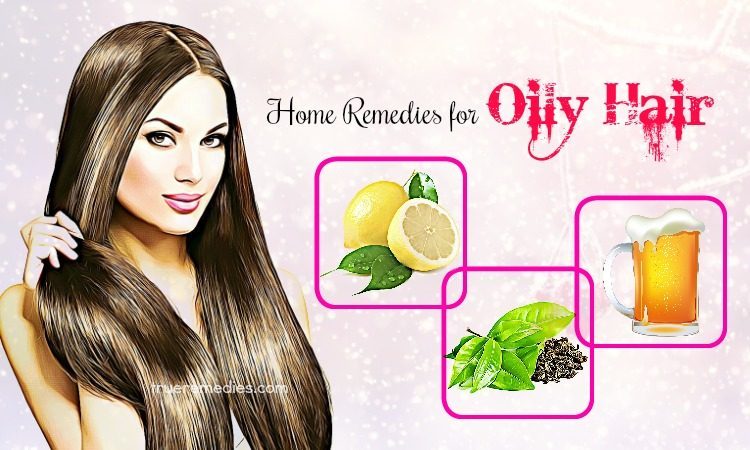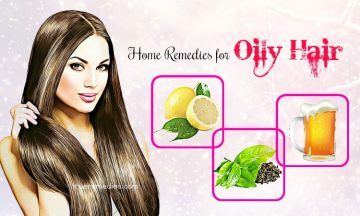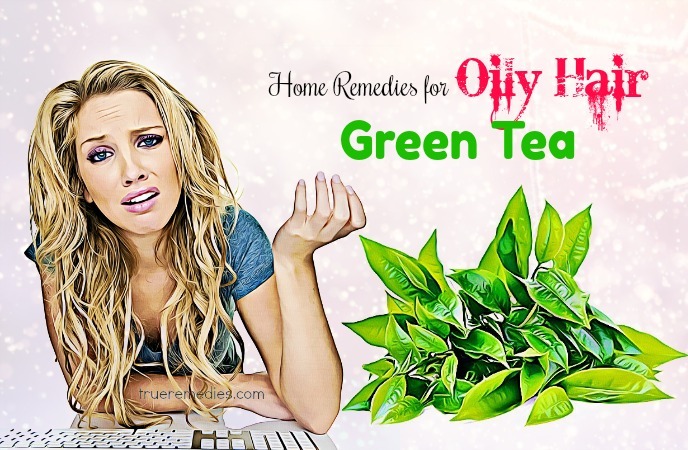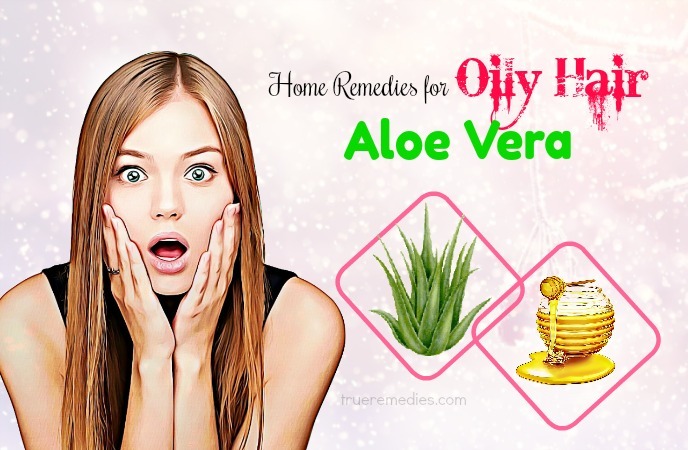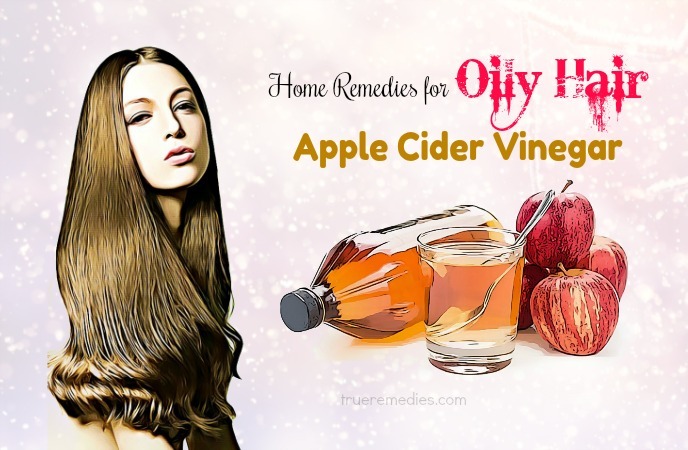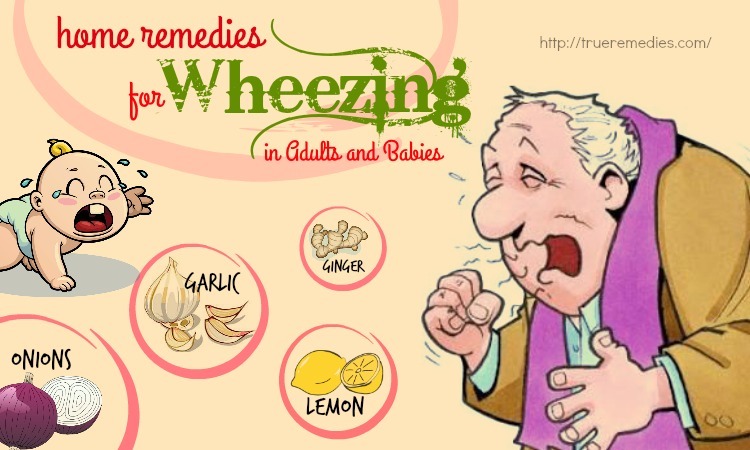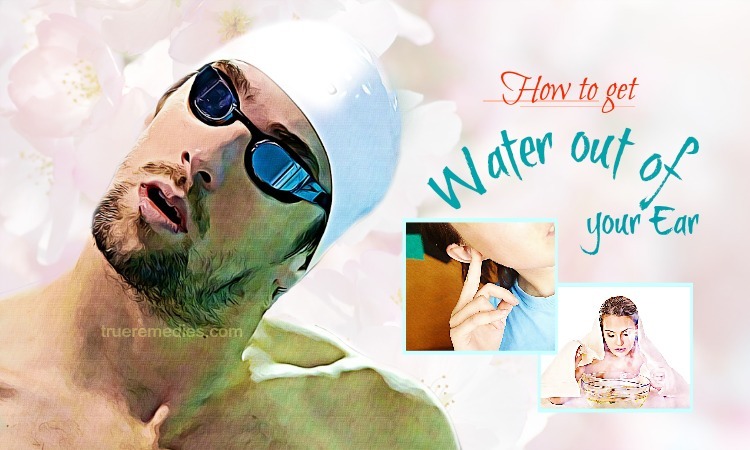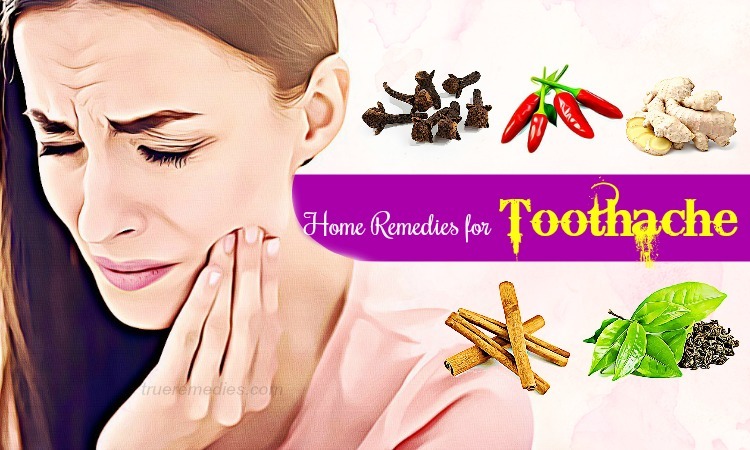updated: 07/31/2019
CONTENTS
Under the impact of extreme weather, our hair tends to be greasy and sticky, which is the leading cause of discomfort and loss of confidence. However, if properly cared for, your oily hair will become smooth and beautifully natural. Oily hair, also known as greasy hair, may develop for several reasons such as the wrong use of hair care products, poor personal hygiene habits, hormone changes, etc. Today’s article will introduce to you the best home remedies for oily hair to add to your hair care routine. However, let’s have a look at some necessary information about this issue first.
What Is Oily Hair?
Oily hair a chronic condition caused by the imbalance of the sebaceous glands secreting oil[1]. This natural oil helps lubricate the scalp and protect the scalp from pollution. However, when there is too much oil, it is a problem. This imbalance affects about a quarter of women, making the hair greasy, heavy and sticky in the head after shampooing. The hair looks a bit “dirty” throughout the length of the hair. If you think your hair is oily, turn your hair a little and gently flick your thumb and index finger together along the strand. If you feel slippery, you have oily scalp and sebaceous glands that are slightly active. The greasy hair looks good only 1-2 days after shampooing. Then it will stick to a small pinch together, and you feel the dirty head. Oily hair is very prone to dandruff.
What Are Common Causes Of Oily Hair?
Have you ever asked why you have oily hair? Below are the causes of oily hair that you cannot imagine:
- Inherited From The Family
If there are people with oily hair in your family, you may get oily hair. However, many parents who own oily hair do not pass it on to their children.
- The Sebaceous Gland On The Scalp
This is considered to be the leading cause of oily hair. If sebaceous glands on the scalp become too active, the hair becomes more sticky and greasy[2]. Because this is the part that produces fat for hair and scalp. On average, each strand of hair has only two lines of lubricant. But if you are unlucky that your strand of hair possesses too much sebum, you have a high chance of being exposed to an oily and tarnished hair and may be at risk for scalp fungal infections. Research has shown that people with thinning hair will have more sebaceous glands than others. Therefore, although they do not want, they still face serious sticky and greasy hair.
TrueRemedies Partner Solutions

Need a Help from the Leading Expert Online, Available 24/7?
They’re all here and ready to answer your questions online or by phone. Keep asking questions until you get the answer you need.
- Hormone Imbalance
When the body is disorganized or hormonally imbalanced, it will also directly affect your hair. If too much hormone is produced, the sebaceous glands will be more active, not only in the face but also on the hair appears oily and sticky. Conversely, if the amount of hormones is reduced, the hair and face are dry. Hair becomes weak and lacking smooth shine. This is especially true in women who are pregnant.
Pregnant women, long-term use of contraceptives, and fatigue may cause hormone imbalance. At this time, the amount of hormones in the body changes and affects the hair. Women may feel the change of body by strange shadows of the hair. This is also one of the causes of oily hair phenomenon. However, it only happened for a while, not worrying.
- Environmental Factors
Polluted air will make the hair and scalp dirty, mold grows and causes oily hair. On the other hand, dry air will dry hair fibers. If it is too hot, the hair is weak and fibrous. Especially in the summer, there are people who even shampoo twice a day cannot get out of this situation[3].
- Vitamin Deficiency
Failure to provide enough vitamins for the hair also causes sebaceous gland to work unstable and cause sticky hair phenomenon. To overcome this condition, actively add vitamins B to your diet[4].
- Excessive Nutrition
People who have a habit of eating a lot of fast foods, which contain an excessive amount of fat, carbohydrate, and starch; women who get pregnant or are nursing, or youngsters in the stage of puberty are very prone to this condition.
- Improper Hair Care Habits
One of the “unfortunate” causes of oily hair condition is improper hair care. The habits of “promoting” the hair oil we usually do are choosing the wrong shampoo and conditioner, leaving the hair dirty for a long time, using too much moisturizing mask, long-lasting stress, lack of nutrition, and so on.
Stress may also promote the production of sebum on the skin[5] and hair due to increased secretion of adrenal gland hormones.
Some diseases involving the pituitary, adrenal glands, and ovaries may increase sebum secretion. Drugs and steroids may also promote sebum production.
Unhealthy, over-reliant on processed foods may also increase the amount of oil on the skin and hair.
Using too many hair products such as waxes, gels, hair sprays, and thorough cleansing may increase sebum, irritation, and itchy scalp.
Who Is At Risk Of Oily Hair?
People who regularly use heat to make their hairstyles and hairdressing chemicals and people who have small hair yarn are faced with oily hair.
When To See A Doctor?
One of the worst consequences of oily hair is dirty and uncomfortable. You should see a doctor if the oily condition get worse and worse. Too much oil may be a sign of a situation that requires treatment. Therefore, finding the cause is more important than seeking treatment. Please tell your doctor if you notice more oil on your hair after shampooing.
There, you have discovered some information about oily hair. To overcome this condition, many people have come to the hair salon for recovering. This takes a lot of money and time. Meanwhile, with the natural home remedies for oily hair, you can do it yourself.
If you are suffering from oily hair, refer to the remedies below. It is time to find out the best methods for oily hair treatment. Take a look at TrueRemedies.com!
Top 35 Effective Home Remedies For Oily Hair
1. Lemon
Lemon is not only a raw material for drinks or spices in the kitchen, but it is also one of the famous beauty ingredients that are easy to find and cheap. Lemon has a high content of vitamin C[6], a naturally occurring acid with exfoliating property and antibacterial effect. Lemon is used in combination with some other natural ingredients to treat acne, remove bruises, and improve the beauty of the hair. Lemon balm helps to remove dandruff, prevent some diseases such as hair folliculitis, scalp infection effectively. This is a way to promote hair growth, reduce the oily scalp condition, and to avoid hair loss effectively and inexpensively. Also, the lemon fragrance is mildly fragrant, giving the fragrance to the hair. Massaging the scalp with a mixture of water and lemon peel brings a relaxed, comfortable spirit, bringing good sleep[7].
Method 1: Lemon Juice
- Prepare 8-10 lemons
- Cut lemon to get juice, do not throw the peel
- Grind the lemon peel
- Use lemon juice and ground lemon peel to wash your hair and massage the scalp
- Rinse with clean water, without shampoo. Perform 4 times a week.
Method 2: Lemon And White Vinegar
- Take 3 fresh lemons and 2 -3 spoons of white vinegar
- Squeeze lemon juice and mix it well with white vinegar
- Apply the mixture of lemon juice and vinegar to your hair and massage gently
- Rinse with clean water after about 20 minutes.
Method 3: Lemon And Sugar Candy
- Prepare 1 fresh lemon, 1 sugar candy and some mint leaves
- Use lemon juice mixed with sugar candy and mint leaves puree
- Wet your hair and scalp and apply the mixture for about 20 minutes
- Wash your hair with clean water and shampoo as usual.
You should repeat this remedy 2-3 times per week for the best effect. This way not only cleans dandruff but also helps you feel good after a stressful day.
Method 4: Lemon And Olive Oil
The exfoliating effect of lemon may help remove dandruff. Olive oil has a moisturizing effect and may stimulate the growth of healthy hair.
- Prepare 1 fresh lemon and 1 cup of pure olive oil
- Use 1 tablespoon lemon juice mixed with 1 cup of oil
- Wet your hair and apply the mixture evenly
- Wrap a towel around your head and let it brew until the next morning and wash your hair with clean water. This will help you to manage the bucket very effectively.
Method 5: Lemon Juice And Yogurt
Lemon juice cleans dirt on the scalp and hair and helps control the amount of oil on the scalp. Yogurt helps the scalp and hair to get the right moisture without affecting the dryness of the scalp.
- Mix 1 tablespoon of yogurt with the juice from 1 lemon
- Make up the mixture and then apply to your hair and incubate for 15 minutes.
- Then wash your hair with fresh water and a mild shampoo.
2. Eggs
Eggs are rich in nutrients and a very inexpensive solution for treating hair problems. The main component of the hair strands is keratin proteins (70%)[8]. Meanwhile, eggs have a very high protein content. This is an essential nutrient not only helping the hair grow quickly[9] but also strengthening the hair, enhancing the regeneration of damaged hair. In addition to protein, eggs also have many other nutrients, good for the hair, such as:
- Vitamins E and B (including biotin) help prevent hair loss.
- Vitamin A is useful in reducing dandruff.
- The fatty acids in the yolks are perfect in relieving oily skin, reducing dry scalp and dandruff, and keeping the hair soft.
- Minerals such as zinc, iodine, selenium, iron, and phosphorus support the growth of hair.
- Egg yolks and egg whites, each side will benefit the hair separately. White liquids contain about 50% of the protein. On the yolk, the protein content is 44%; fat and cholesterol are mainly found here.
Method 1: Egg Whites
- Chicken egg white helps to absorb oil very well.
- Prepare 3 egg whites
- Add 1 to 2 drops of menthol to the egg white, mix well, and apply to your hair
- Cover your head with a nylon roll for 15-20 minutes
- Rinse with water
Method 2: Eggs And Lemon
- Break 1 the chicken eggs to get the egg white and add 1 tablespoon fresh lemon juice. Mix them well
- Use a spoon to apply the mixture to your hair
- Wait for about 15 – 20 minutes and rinse your hair with water
Lemon, with natural antimicrobial effect, cleanses the scalp and helps your hair absorb nutrients from chicken eggs well.
Method 3: Eggs And Olive Oil
- Just mix 1 egg yolk with 1 tablespoon olive oil
- Add a glass of water and continue to mix
- After cleaning your hair, apply this mixture, your hair with a large towel
- Rinse it off with cold water for the final step.
Method 4: Egg Yolk and Castor Oil
- Mix 2 egg yolks with 2 tablespoons of castor oil and massage your hair using this solution.
- Carefully move from the hair roots to the ends
- Wash with water.
Method 5: Chicken Eggs And Yogurt
- Prepare a chicken egg and a box of yogurt.
- Break the egg into a bowl, add 4 tablespoons of yogurt, and mix to form a mixture of the comparator.
- Wet your hair and apply the mixture to your hair from root to tip.
- Leave it on your hair within 10-15 minutes, and then wash thoroughly.
3. Green Tea
Among home remedies for oily hair, green tea is one of the most effective. Green tea not only increases the excitement of the nervous system, prolongs the skin’s lifespan, but also helps keep the hair dry. In green tea, in addition to antioxidants[10], there is tannic acid[11] that effectively controls the production of sebum on the scalp. Using green tea to massage your hair and scalp and incubate for a few minutes before shampooing is the way you care for scalp effectively.
- Dip a tea bag into lukewarm water then apply the tea water over the scalp.
- Keep for a few minutes and rinse with shampoo
4. Baking Soda
Baking soda is white, powdered, slightly salty, highly alkaline, and soluble in water. It is dried as well. Baking soda may be used to clean hair when mixed with water, shampoo, or conditioner. It has the effect of cleaning up excess oil on the scalp, removing impurities and cleansing hair. Baking soda is also used to remove residues on the skin with too much lubricant. It may increase the uptake of the conditioner. So you can use baking soda once a week to help the hair be appropriately conditioned. If you are treating hair loss, baking soda will make the hair follicles clean, letting hair loss products penetrate easier[12].
Method 1: Dry Shampoo
You can sprinkle it directly to your hair and use a comb to brush. Baking soda will absorb all excess oil. Your hair will be smoother, no longer sticky and smelly.
Method 2: Combined With Shampoo
- Mix 1 tablespoon of baking soda with 1 tablespoon of shampoo
- Wash your hair using this mixture
- After use, you can immediately feel the hair clean and shiny smooth without fear of any damage even with weak hair.
- Only repeat this remedy twice per month and do not overuse.
Method 3: Use Baking Soda Instead Of Shampoo
- To make shampoo, you need to mix 1 part baking soda with 3 parts water.
- Pour this mixture on dry or damp hair, mainly focus on the area around the hair roots and scalp.
- Massage by using your hands for 1 minute
- Rinse thoroughly with lukewarm water.
- After the baking soda is thoroughly rinsed, use a mixture of vinegar and water in a ratio of 1: 4 and shampoo again.
- Use this mixture evenly from the root to the ends of your hair, try to let your hair wet, soak it in cold water to soften, and you will have smooth and soft hair.
Note:
Baking soda is a strong alkaline with pH 9.0[13]. High alkalinity opens the epidermis of the hair and makes it easier for the hair to absorb too much water[14]. To limit this, use apple cider vinegar to balance the pH of the hair. The acids in apple cider vinegar will close the hair cuticle. You need to dilute 1 part apple cider vinegar with 4 parts water and rinse hair with this mixture after using baking soda.
Baking soda is also highly abrasive because it is crystalline[15]. So you should use a small amount of 1 – 2 teaspoons each time after dissolving it.
5. Beer
The next treatment in this list of natural remedies for oily hair is using beer. Beer is composed mainly of malt and hops, containing large amounts of B-group vitamins and nutrients to help provide moisture, help hair healthy, kill bacteria, and reduce fungal scalp. If you use beer for hair, the epidermis begins to organize itself in an orderly fashion. Also, shampooing with beer is very beneficial for your scalp[16]; beer or yeast deposits help reduce sebum production and control oily skin on your face or scalp.
Method 1: Shampoo And Beer
- Pour the beer into a brazier and dip the entire tip of the hair into the beer first, allowing the beer to soak into your hair for a while then wash your hair with beer. It is possible to perform some head massage movements to increase the effectiveness of the use.
- Keep the beer on the head for about 5 minutes
- Rinse it off with clean water, but do not need to remove the beer altogether, as this will create a better effect, making the hair smooth and shiny.
- When making shampoo with beer, it takes several tries to see the effect. However, only do 2-3 times a week to avoid drying hair. Do not drink beer after shampooing.
Method 2: Beer And Eggs
- Prepare 1-2 cans of beer depending on your hair thickness and 2 eggs
- Wet your hair, then slowly pour 1 can of beer to your hair and massage
- Massage your hair and scalp gently for 3 to 5 minutes
- Make a mix of beer and chicken eggs – stir well
- Rub the mixture over the scalp and cover your head with a towel for at least 15 minutes.
- Rinse with lukewarm water.
- To get the best results, you should repeat 2-3 times a week so that the nutrients are supplied to the scalp regularly and stimulate your hair to grow faster and smoother.
Method 3: Beer And Vitamin B1
- Dissolve 10 tablets of vitamin B1 in water. To make this process faster, you can grind vitamin B1 into powder and add water to stir.
- Mix the above water with beer
- Divide the mixture into two equal parts
- Massage your hair and shampoo with one part and use the other as hair conditioner
- Wash your hair with water
- Perform 2-3 times a week for a quick result.
Method 4: Beer And Fresh Milk
Please follow the steps below to make use of these ingredients as one of the home remedies for oily hair:
- Prepare 300 ml of beer and 200 ml of fresh milk without sugar and mix them well
- Wash your hair with clean water
- Apply the mixture evenly and incubate with a soft cotton towel for about 30 minutes
- Rinse your hair with water
- After about a month, you will see an apparent change. Naturally, the hair is softer and softer.
Method 5: After Shampooing
- Wash your hair thoroughly with shampoo as usual
- After drying the hair, use about 1 can of beer to apply evenly to the hair and scalp
- Combine with head massage for 5 minutes and then use a hot towel to wrap the hair and incubate for 15 more minutes
- Finally, wash with cold water.
- Perform 2-3 times per week to see the best result.
Also, you can also brew hair with beer by combining it with some other natural materials, including:
- Avocado puree mixed with beer, apple, and honey into a thick mixture.
- Apply this mixture to your hair, leave it on for 20 minutes and then rinse with water.
6. Aloe Vera
Aloe vera contains many vitamins with high levels[17], except for vitamin D. In particular, the levels of vitamin A (B-carotene), C and E are high. A small amount of vitamins B1, B2, B3, and B12 works to promote the growth of healthy hair follicles. The salicylic acid found in aloe leaf is a compound similar to aspirin[18]. It has anti-inflammatory and antibacterial properties to help prevent scalp problems like hair folliculitis and dandruff. Therefore, aloe vera not only is used to treat hair loss but also makes hair soft and healthy.
Method 1: Aloe Vera, Lemon Juice, And Shampoo
- Mix 1 cup of shampoo that you use daily with 1 tablespoon of lemon juice and 1 tablespoon of aloe vera gel. If you do not have aloe gel, you can take fresh aloe leaf, peel the white part, and rinse thoroughly.
- After moisturizing your hair, use this shampoo to wash your hair as usual.
- Finally, rinse it off with lukewarm water.
- If you do not have much time, you can make a certain amount of aloe vera shampoo and store in a glass jar in the refrigerator to use in a week.
Method 2: Aloe Vera And Honey
- Take about 500 grams of aloe vera, peel the green skin to take the white meat inside.
- Blend it with 3 tablespoons of honey (or olive oil)
- Then apply the mixture to your hair and scalp
- When the mixture becomes dry on your hair, rinse it off with clean water.
Method 3: Aloe Vera Gel And Kitchen Salt
- Mix a small amount of salt with aloe vera gel and rub the mixture on the scalp
- Gently massage your scalp for aloe vera essence to spread evenly
- Use a clean towel or mask to cover the hair for 5 to 10 minutes to allow the hair and scalp to absorb the nutrients in the detergent
- Wash your hair with warm water to keep it soft.
Method 4: Aloe Vera Gel And Lemon
- Prepare a fresh aloe vera leaf, remove the green peel to take the juice inside
- Mix it well with the juice of a fresh lemon
- After shampooing and drying your hair, spread the above mixture all over your hair and scalp, gently massage for the nutrients to penetrate into the hair follicles
- After 15 minutes, wash with clean water, repeat this method 2-3 times per week for the best effect.
Method 5: Aloe Vera And Coconut Oil
- Mix aloe vera gel with a suitable amount of coconut oil
- After shampooing and drying your hair, use the above mixture to massage your hair and scalp
- After about 20 minutes, wash with warm water to remove excess oil
- Perform 2-3 times a week
7. Alcohol
According to scientific studies, alcohol is a perfect leave-on conditioner[19] because it possesses powerful antioxidants. This is a tool to help protect hair cells from damage and protect the scalp from diseases. Not only that, wines help prevent damage to the hair, such as breakage, heavy oil.
Method 1: Just Alcohol
Each time you shampoo, add 2 teaspoons of white wine to your shampoo and wash your hair as normal. You will see beautiful hair after one week of applying.
Method 2: Lemon And Wine
Lemon and wine are highly antiseptic. Therefore, a mixture of lemon juice and vodka is an excellent choice for women who have oily scalp, which causes frequent hair loss in the condition of stickiness.
- Mix 1/2 cup of vodka with 2 teaspoons of lemon juice
- Use a cotton pad to apply the mixture to the entire scalp and leave it on for 1 hour
- Rinse it off with lukewarm water for the final step
- Apply several times, the amount of oil on the hair will be reduced significantly.
8. Apple Cider Vinegar
Apple cider vinegar has the effect of astringent[20], which may help to kill bacteria and fungus and limit the oily secretion.
Method 1: Just Apple Cider Vinegar
- Mix about 60 ml apple cider vinegar with 1 liter of water
- Spray the mixture over your hair using a spraying bottle
- Hold for a few minutes and then rinse with lukewarm water.
Method 2: Hot Apple Cider Vinegar
- You just take a cup of hot apple cider vinegar, reduce the heat a little bit, and massage on your scalp gently
- Rinse it off with clean water after 30 minutes.
9. Guava And Tubers
You will be surprised to know that juices made from spices such as guava[21], ginger, garlic, or onion may contribute to the beauty of the hair. That’s because, in their ingredients, there are nutrients that may tighten the hair roots and reduce oil quickly.
Method 1: Guava Leaves
Guava has many antioxidants and nutrients such as calcium, iron, and folic acid[22], which are very beneficial to the hair. In addition to guava, guava leaves also help avoid hair loss and reduce oily hair effectively. You can boil guava leaves for about 20 minutes, let it cool, and then shampoo your hair with this water. Depending on the thickness of the hair, you can choose the concentration of guava leaves. After shampooing, gently massage the scalp and let your hair dry naturally.
Method 2: Tubers Juice
- Prepare 1 ginger, 2 garlic, and 1/2 onion
- Squeeze the juice of the above ingredients, mix them well, and then apply a small cup of juice to the hair root
- Massage for 5-10 minutes to let the nutrients absorb into your scalp
- Wash with clean water.
- If you feel hard, you can dilute the juice with water to reduce the concentration.
10. Essential Oil
This remedy is one of little – known home remedies for oily hair. Some essential oils have incredibly high antibacterial properties[23]. In addition to cleansing the scalp and restoring damaged hair, essential oils also reduce the amount of fat in the hair very effectively. With a fresh and delicate scent, they give the hair a pleasant smell, while protecting it from sticking, creating waves, and helping to lift the hair.
Method 1: Lavender Essential Oil, Rosemary Essential Oil, Peppermint Oil
- Mix 10 drops of lavender essential oil with 10 drops of rosemary essential oil, 5 drops of peppermint oil, and 2 teaspoons of jojoba oil.
- Apply this mixture to your hair before going to sleep; after a while, you will see the unexpected effect.
Method 2: Lavender Oil, Salt, And Apple Cider Vinegar
- Apply a small amount of lavender essential oil combined with a little salt and 1/2 teaspoon of apple cider vinegar to your dry hair before shampooing.
- After 10 – 15 minutes, wash your hair as normal
11. Other Practical Tips
Method 1: Choose The Appropriate Shampoo
To put an end to the sticky hair condition, women need a refinement to choose the right shampoo for her hair. You should not select moisturizing shampoo because they will make your scalp to produce more oil. You should not use a shampoo with lotions, too.
Shampoo needed for sticky hair is balancing or clarifying shampoo. You should also avoid washing your hair regularly because it encourages your scalp to produce more oil to compensate for the wiped-away one. Remember to choose gentle shampoos that keep your hair smooth and oil-free.
Method 2: Wash Your Hair Properly
- Water temperature when shampooing plays a significant role, you should use cold or warm water to shampoo. Do not use hot water because it stimulates sebaceous glands under the scalp to work more. In contrast, cold water removes the scales on the hair and helps the hair look more beautiful.
- You should use conditioner for hair ends because this part is easy to dry. Conditioners help to soften and nourish this part of the hair.
- For oily hair, you should limit the use of hair styling products such as gel, mousse, cream sticky. After shampooing, use a thin comb to brush your hair.
- Do not brush your hair or touch your hair much if not necessary. Combs or fingertips, when exposed to the scalp, may draw an amount of oil from the scalp to the ends of the hair when the shine becomes greasy.
- Do not rub or massage too hard when shampooing. Limit the use of care products such as hair sprays, bending tools, stretchers, blow dryers, and any other hair care equipments.
Method 3: Chalk Powder
Using chalk powder may effectively repair damaged hair with perspiration or oiliness. If the scalp is too greasy to keep the hair from falling, you can increase the thickness by sprinkling powder into the hair roots. The mucus on the scalp will immediately penetrate the dust and the oil will be removed immediately. However, you should brush the powder evenly, avoid leaving white patches on your hair, and remember that this is only a temporary measure.
The above-mentioned natural home remedies for oily hair are claimed to be able to reduce the symptoms of greasy hair. Everyone knows that hair restoration by natural methods is much better than using hair care products because chemical compositions in hair care products may irritate the scalp and damage the hair. However, restoring oily hair with natural remedies is time-consuming and slow-acting so you need to persevere and regularly perform to get the best results. Choose some remedies and alternate them in your treating to see how effective they are. If you have any contributing ideas about our article introduced in Home Remedies Category, do not hesitate to drop your words below this post. We will answer as soon as possible.
Wish you have soft, smooth hair!

